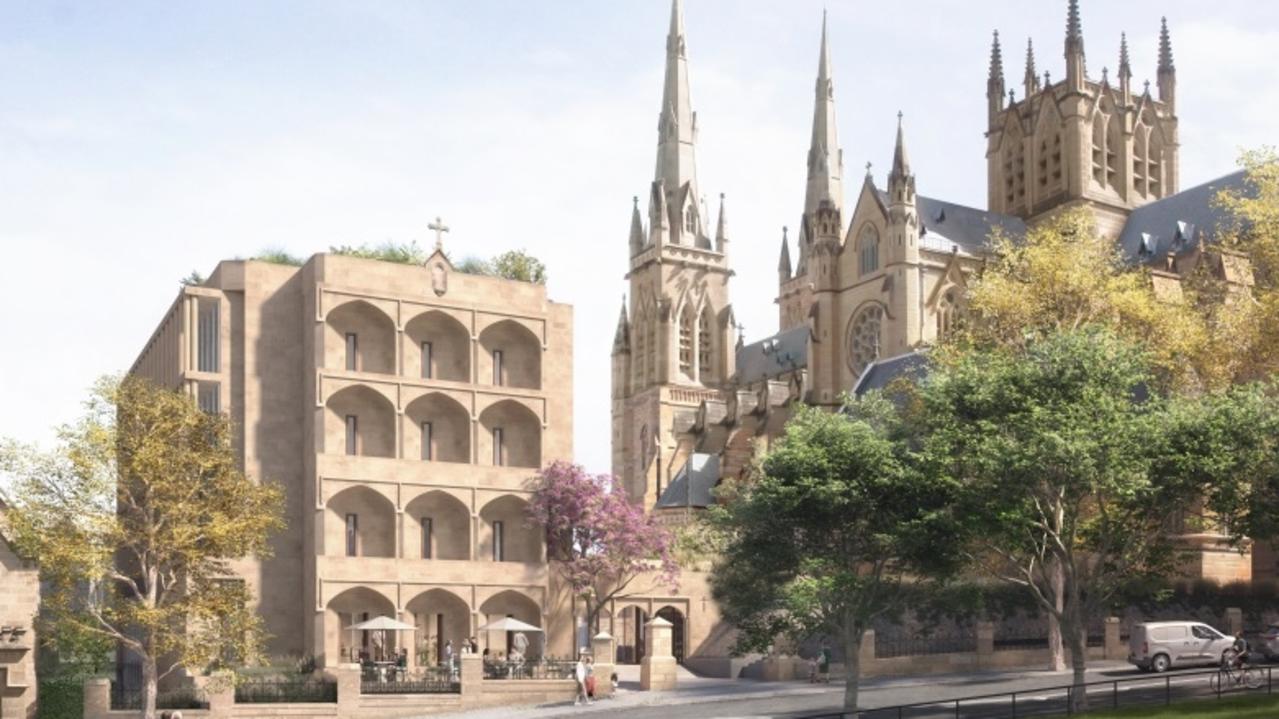Kings Cross ghost town: Lockout laws turning off Sydney’s red light as businesses flee
ONCE an iconic entertainment precinct, Kings Cross is now a ghost town, a shell of its former self reports Ashleigh Gleeson. Businesses are leaving and the night-time economy is struggling.
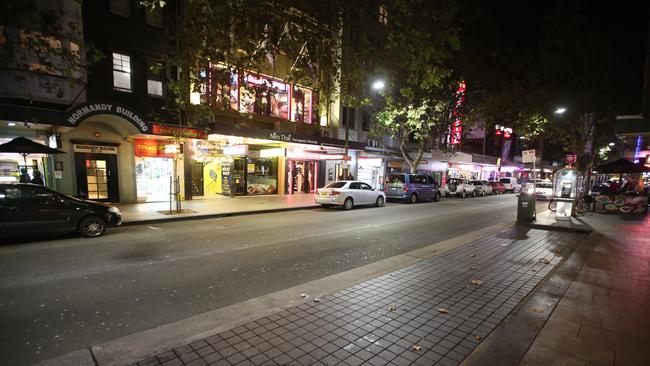
NSW
Don't miss out on the headlines from NSW. Followed categories will be added to My News.
“THEY’VE taken the soul out of Sydney.” “Every week it just gets quieter and quieter.” “It’s just not worth it to be here anymore.” This is what people are saying about Kings Cross.
Once an iconic entertainment precinct, it’s now a ghost town, a shell of its former self. Businesses are leaving and the night-time economy is struggling.
It was bearable last year, but this winter could prove the final nail in the coffin for the red-light district, in the midst of a transformation that includes luxury apartments, office spaces and new restaurants and organic cafes.
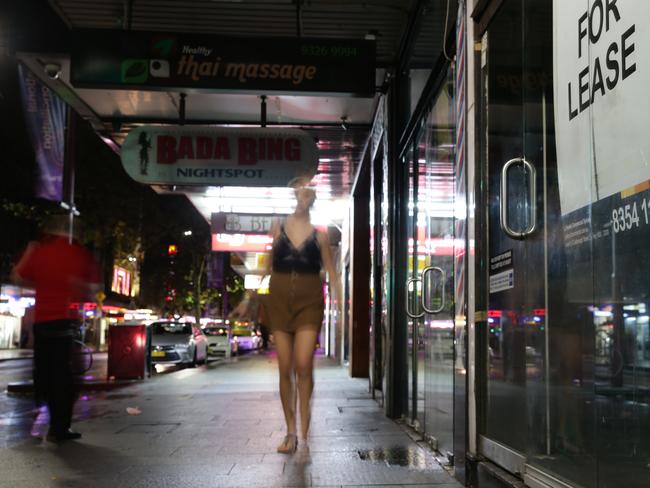
However, some brothel, bar and strip club owners hope they can hold on and things will change.
An independent review into the effectiveness of the lockout laws, headed up by former High Court judge Ian Callinan QC, is due to be delivered to the state government in August.
This week it was revealed there had been no significant drop in violence between the lockout time of 1.30am and the 3am last drinks.
And the NSW Police Association has now come out saying it would support a possible move to extend the lockout, if it didn’t stall progress in reducing alcohol-fuelled violence.
On Thursday and Friday nights, barely anyone is around. Outside strip club Showgirls, a group of dancers huddle outside to have a cigarette in the cold.
“Beks” has been waitressing for three-and-a-half years.
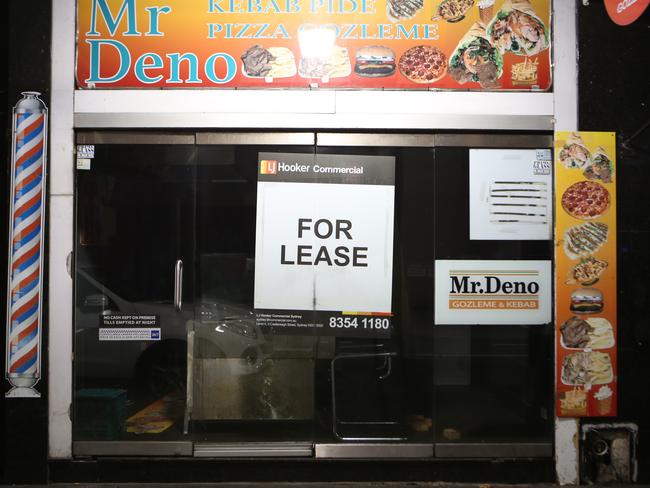
“Before the lockouts girls would say they’d leave with no less than a grand a night and now they’d struggle to get half of that,” she says. “It’s sad. They’ve taken the soul out of Sydney.”
Showgirls used to draw in more than 200 people a night, but now they’re lucky to crack 100 on a busy evening.
Licensee Hannah Estante says it’s harder to find girls to work because the money isn’t as good anymore.
“This year’s definitely had a bigger decline than last year, I think people are just over it. Before lockouts this place used to be packed, you couldn’t walk through,” she says.
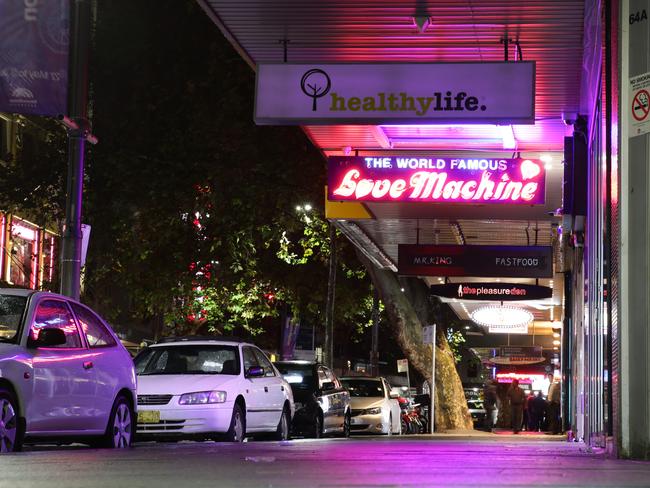
Although Bada Bing’s closure following police raids has helped keep them afloat, only 30 customers are inside while she speaks. And it’s Friday.
Over at the Love Machine, which doesn’t have a liquor licence, it’s a similar story. A man who says he’s an investor known as “Gucci” says the strip club is losing money.
Across the road a 19-storey development for 135 luxury apartments towers over the club, a sign of the growing gentrification of the area.
Maggie’s Club for Gentlemen is now the only remaining brothel on Kellett St, nestled away from the main street. At one point there were five brothels along the strip and before the lockouts there were three.
Maggie says she used to have 20 girls working on a Friday and Saturday night with a half-hour wait to get in. Now she relies on her regulars to keep her going.
A man walks in while she speaks and has his pick of four girls who stand in a row in front of him.
“Of course it’s 50 per cent down, of course there’s no business, of course it’s ruined people’s lives — so what can you do?” she asks.
“It used to be they’d been to the nightclub, they’d been to the strip club and then because they didn’t get lucky they’d come to Maggie’s.
“I’d sell if I could but no one wants to buy any more. The only reason I’m still here is because I’ve got a lease and after being here 25 years I’ve got to tread water and hope it gets better.”
After 14 years in the area, nightclub Candy’s is on the list of clubs on the way out.
“To be honest if we can find another area we’ll go, it’s not worth it anymore to be here,” promoter Jarrad Bodeker says.
“This is one of the only nightclubs left in Sydney, there are not many proper nightclubs left these days.
“We’re one of the busier clubs but the street traffic is down, there’s nobody coming to the city at all.”
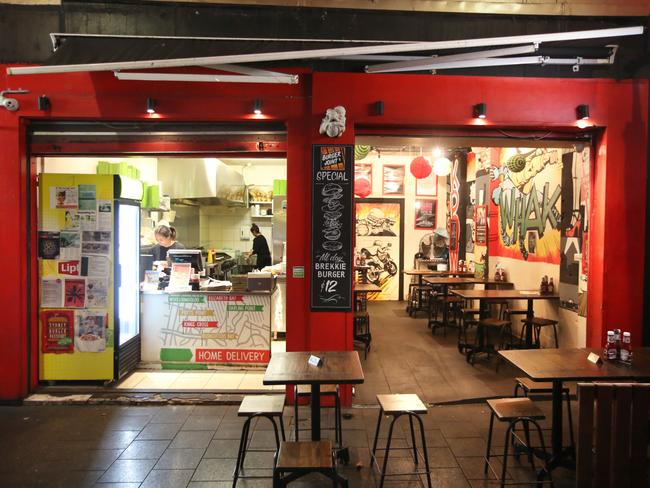
Foot traffic for Friday night at 11pm has been recorded as 58 per cent down at the Cross. And it shows: Candy’s has only 50 people inside.
Along Darlinghurst St a dozen shopfronts have For Lease signs plastered across their windows.
In a single hour a fast-food chicken and pizza takeaway store near the Coca Cola sign has 12 customers. Most are workers or people with grocery bags.
Down the road, Five Star Kebabs manager Veysen Ozgiray says their revenue has halved.
He says they’ve reduced trading hours and the owner had closed down his other kebab store a few doors along.
“Last year Friday and Saturday nights were still busy — now every night is dead,” he says. “Everything is down, life is down.”
Small bar and cafe 5 Boroughs is also empty and owner Sav reveals he’s sold it to some Asian investors.
“I’m not really worried about what’s going to happen to the bar, I’m just glad to get out,” he says. “Every week it just gets quieter and quieter.”
But some businesses are trying to fight to stay alive.
Restaurants and bars along the trendy Llankelly Place are putting together a petition to the council for permission to have people drink in their alfresco areas until 11pm, not 10pm.
Ballazs Takats bought LL Wine and Dine nine months ago and says revenue for this January was down 35 per cent on the year before.
“In summer no one comes in until 8pm, then at 10pm you’ve got to go inside,” he says. “I took over here because I think it will be amazing soon, it will build up again.
“These laws can’t last in a city this size, for the amount of people who are losing money.”
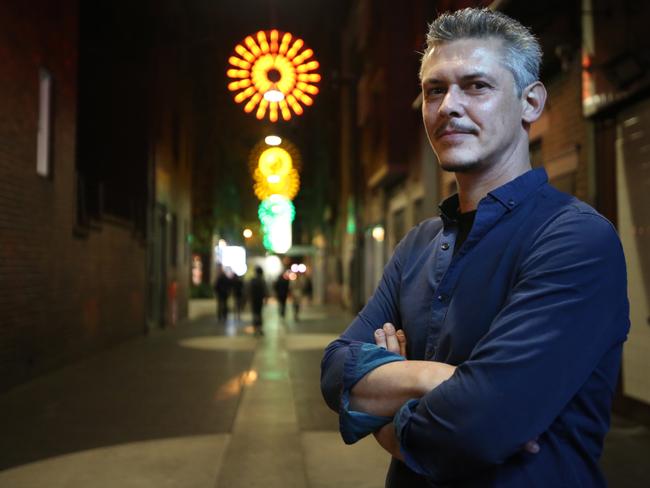
One thing that hasn’t changed is the amount of people using the Cross’s injecting room, the numbers have remained steady.
Backpackers are also still coming to the area in strong numbers. But Mr Takats says they don’t spend money.
Glasgow 25-year-old Michael Miquel, a backpacker, is on his way to McDonald’s to get dinner with friends when he gives his opinion of the Cross.
“I think all the good music has left. I think all the good people have left. You’ve just got backpackers,” he says.
Others say they’ll tell their friends back home to visit Melbourne instead of Sydney where it’s less of a “nanny state”.
Melbourne scrapped a 2am lockout policy in 2008 because it proved so unpopular and the city has instead introduced around-the-clock transport on weekends to stimulate the night-time economy.
But it’s not all doom and gloom for the Cross, depending on who you ask.
Along with luxury apartments, two new high-end strip clubs have opened up, while old nightclubs have changed into organic cafes and a radio studio.
The old Soho nightclub building was snapped up for $10.2 million earlier this year and developers plan to turn it into a retail space for shops, restaurants and offices.
Yoga studios, gyms and an interior design store are other new additions.
But there’s a sense of anger from night-time businesses about how developers are pushing their way in and that the state government let the casino be exempt from the tough rules.
All admit the deaths of Thomas Kelly and Daniel Christie are sad, but point out both incidents happened before or at 10pm.
Nick Woolcott, 22, started living in Kings Cross before all the changes and says the small bar scene has started to pick up, so the place was now good to go for a “quiet” couple of drinks.
He shares a bottle of wine with friend Sophie Kesteven, 24, inside an empty Thai restaurant.
“I think the lockout laws were a sledgehammer on a problem that needed a more nuanced solution, like using police more effectively,” he says.


